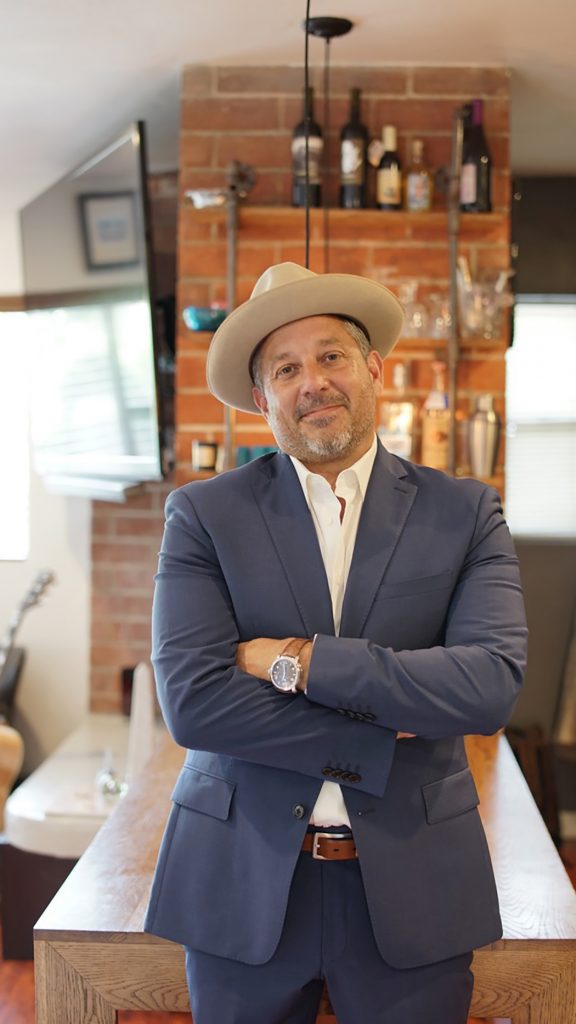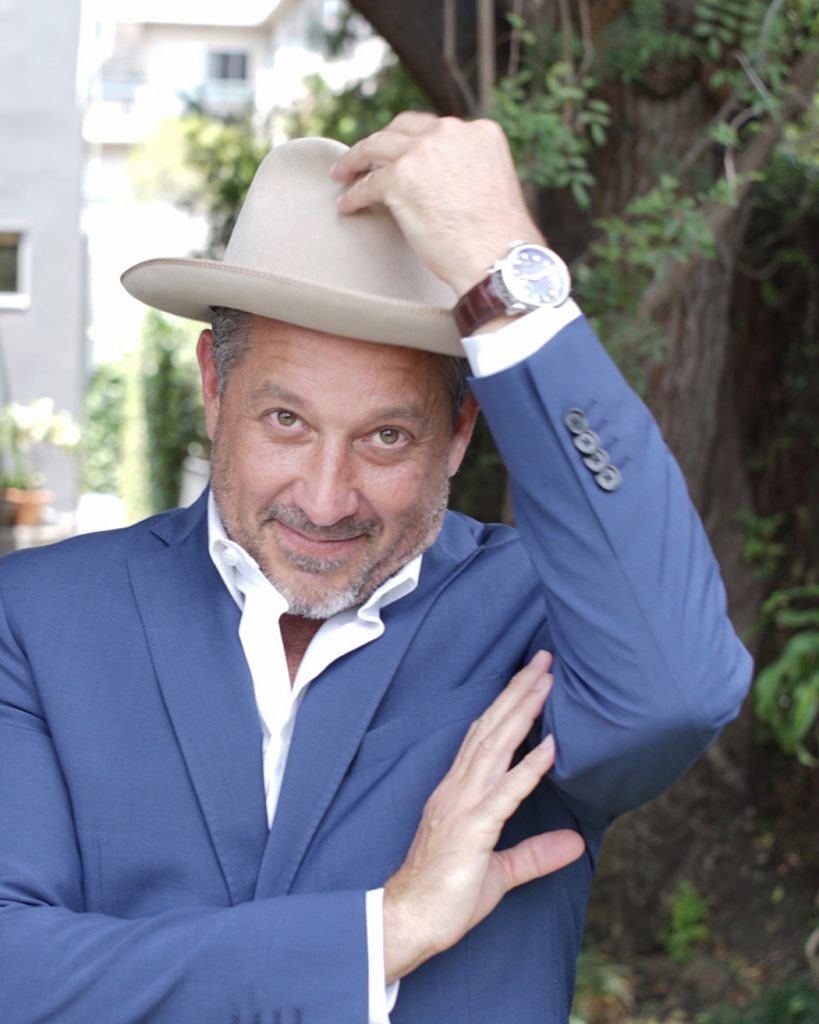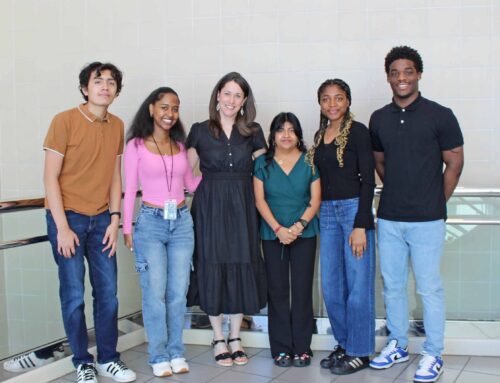Damon Epps’ phone rings, and the 1979 hit “Good Times” radiates through the kitchen of his childhood home in Lake Highlands.
The song’s title is his nickname, earned because of his nonchalant nature working as a producer on “America’s Got Talent.”
“My boss would be freaking out, and I’d be like, ‘good times,’ ” he says. “Everybody ended up calling me that. It was funny. So now the nickname’s propelled me through the years.”
Goodtimes USA is his brand.
After years as a producer, Epps traded the drama-fueled hijinks of reality TV for equally eccentric documentary series. Epps partnered with Texas billionaire Gary Evans and his wife, Ashley, to create “American Oil,” a show chronicling the oil industry. Another he’s shopping to networks is about a black collegiate cheerleading squad. And he somehow persuaded Homeland Security to let him film at the border.
“To me, it’s the same job no matter if it’s ‘A Shot of Love with Tila Tequila,’ or it’s going after the cartel, or you’re telling a cheerleading story,” he says. “It’s really about what are the people doing, how did they get there, what’s their back story. Everybody is who they are because of where they came from.”
Between filming and editing, he made it home one August weekend for the opening of Steam Theory Brewing, where TV host Chris Harrison, a childhood friend, is an investor.
Harrison and Epps are reality-TV titans. While Harrison rose to fame hosting “The Bachelor,” Epps was behind the scenes, developing shows like “Wedding Wars” and “Friend Zone.” Like Harrison, Epps’ introduction to reality TV was accidental. Epps was a stand-up comedian in Los Angeles with a knack for videography. He scored a few gigs filming music videos including Snoop Dogg’s “Drop It Like It’s Hot.” Around the same time, a friend asked him to help produce A&E’s “Inked.” Two years later another friend, SallyAnn Salsano, formed 495 Productions, the self-proclaimed “most formidable hit factory” for the genre.
“People are telling me the shows I produced are their childhood shows,” he says. “I was like wow, that’s crazy. A whole generation I tainted. It makes me feel old, but I have to appreciate it. They’re great shows. They’re fun. They’re loud. I’m not ashamed of them. I should be.”
10 questions with Damon Epps
Tell me about “HSI: Laredo.”
The things I’ve learned that Homeland Security does, it’s terrifying. I can’t say his name. But this guy was the head agent for HSI in Mexico when they busted El Chapo. Now he runs the entire stretch of border from Laredo to the Gulf. I’m really just following the agents of the department.
How did you get that access?
I did a show called “Blue Collar Millionaire” for CNBC. On the show is Mickey Redwine, a hysterical redneck. In his retirement, he decided to do drug busts and become a sheriff.
He called me up and said, “Damon, so I’ve been chasing down the cartel nowadays.” I’m like, “Of course you are, Mickey.” He’s like, “We’ve been doing these things called controlled drug busts … You think somebody would want to watch that on TV?” I was like, “Yeah Mickey, but I’d have to get a hold of Homeland Security.” He’s like, “They’re coming out to the ranch. Come and talk to them.” I didn’t believe it was going to be true, but I ended up meeting them.
As a reality TV producer, did you manipulate people?
I would say that I was the guy manipulating the situations. I was the guy in the field trying to make stories happen. Back then it was a much different system. Cast members hadn’t seen any reality TV, so you had all these tricks you could play. I would never lie to anyone. You plant seeds. You do things that can instill stories and drive things. You never can tell someone else their secrets because they have to be able to trust you as a producer. It’s a very delicate game, but it’s a very fun chess match.
Did that get tiresome or annoying?
I never feel bad because I never have done anything mean. I was always like a dad on set. If anything bad happened, I was the first one there. Even “Tool Academy”— I had a very cool, funny job.
All the guys came in thinking they were going to a different show. I came in with an alias. I would tell them, “I’m Carlos, and I’m a billionaire. I just want to let you know we’re going to tear up the town. I’m going to need you to be sure you’re wild and crazy.” These guys would say anything and everything.
What’s one of your favorite on-set moments?
On “America’s Got Talent” season one, I always wanted all the crazies. I had people like Boy Shakira. When he walked in, he was this very innocent guy dressed like Shakira. It was great working with him, building up his confidence and then having him get a standing ovation.
What was “Jersey Shore” like?
I produced one season of “Jersey Shore.” I didn’t want to do “Jersey,” but of course it became the biggest hit ever. My job was to go have fun and make sure everybody else had fun. I was supervising producer. There’s just nothing bad I can say about any of them. A great cast is exactly what you see. It’s like lightning in the bottle. They all just naturally have their own role.
What’s the strangest situation you’ve experienced?
I remember being in Jersey with everyone. There was a point where the kids were famous by now. A big group of people started gathering around us, and the cops were pushing these people back. The sheriff looked at me and said, “You need to jump in the car right now. This is the Russian mob.”
On “Party Down South,” I was in the middle of a party, and I’m interviewing all these people. The people surrounding us, I realized I’m in the middle of the KKK. You’re out there by yourself with a camera. Those are a few scary moments.
Why is reality TV a guilty pleasure?
Here’s the thing: I think everybody says that, but it’s just pleasure. It’s not even guilty. You like it? You’re watching it? Don’t feel guilty about it. Whatever.
What were you like at 16?
I’m the same. I was always the loudest guy in the room. I still talk more than anybody else. I think people think I’m funny. I genuinely love people, and I like what they have to say.
So many famous people grew up in the neighborhood. Why is that?
It’s a really lovely place to grow up. I feel like I had support from the neighborhood and friends and parents. I think it’s a place where if you want to chase your dreams, you can come back as a failure and it’ll be fine. I still have a little time to fail, so we’ll see.
Interview edited for clarity and brevity.







